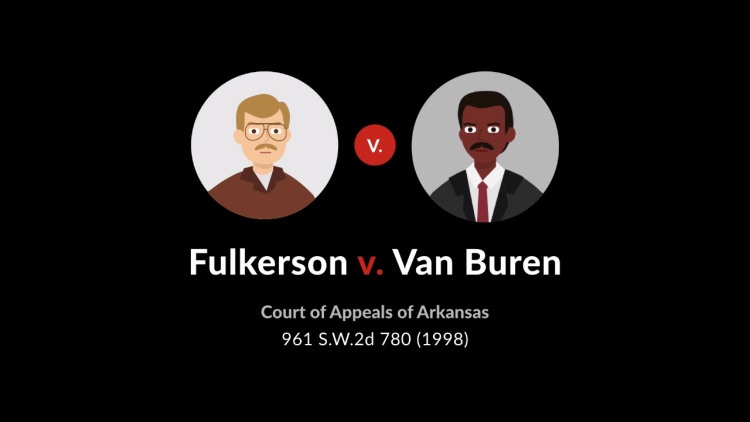Fulkerson v. Van Buren
Arkansas Court of Appeals
961 S.W.2d 780 (1998)
- Written by Anjali Bhat, JD
Facts
In 1949, Floyd H. Fulkerson (plaintiff) obtained legal title to a parcel of real estate in Arkansas. The parcel contained a church building. In 1985, the Progressive Church, Inc. (defendant) began using the church building. Also in 1985, Reverend Van Buren and other members of the Progressive Church began cleaning up the parcel containing the church building, which was overgrown and littered with debris. Van Buren and the Progressive Church replaced the roof, siding, windows, and floor of the church building, added a 40-foot building and office, and installed central heat and air. In 1995, after asking the Progressive Church to vacate the premises and being refused, Fulkerson brought suit requesting that the Progressive Church be ejected from the parcel. The Progressive Church filed a counterclaim asserting it owned the parcel by adverse possession, which had a statutory period of seven years. At trial, Van Buren testified he would not have improved the property if he did not believe the Progressive Church had rights to the parcel. Van Buren also testified he learned the church did not have a deed to the parcel in 1990 or 1991, and prior to that time, he had made no assumptions about whether the Progressive Church was on the parcel because it had purchased the land or because it had been given permission. Additionally, Van Buren testified that when Fulkerson told him that Fulkerson held title to the parcel, Van Buren accepted it. Van Buren further testified the Progressive Church had no intent to hold the land adversely until 1994 or 1995, when Fulkerson sought to eject the Progressive Church. The trial court found the Progressive Church had title by adverse possession. Fulkerson appealed to the Arkansas Court of Appeals, arguing the Progressive Church had not fulfilled the elements of adverse possession.
Rule of Law
Issue
Holding and Reasoning (Jennings, J.)
Dissent (Meads, J.)
What to do next…
Here's why 910,000 law students have relied on our case briefs:
- Written by law professors and practitioners, not other law students. 47,100 briefs, keyed to 997 casebooks. Top-notch customer support.
- The right amount of information, includes the facts, issues, rule of law, holding and reasoning, and any concurrences and dissents.
- Access in your classes, works on your mobile and tablet. Massive library of related video lessons and high quality multiple-choice questions.
- Easy to use, uniform format for every case brief. Written in plain English, not in legalese. Our briefs summarize and simplify; they don’t just repeat the court’s language.





